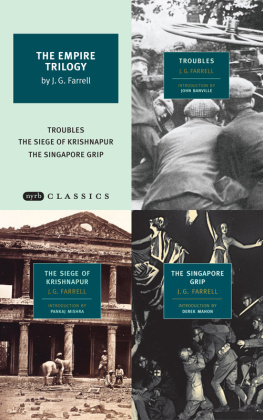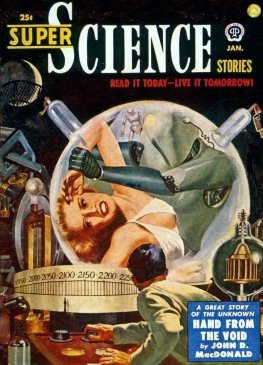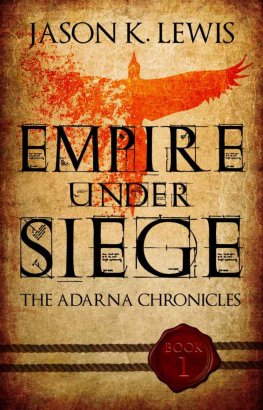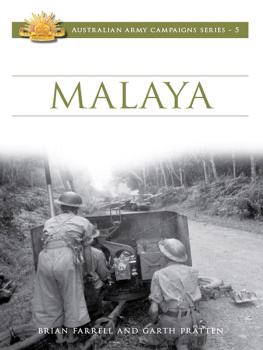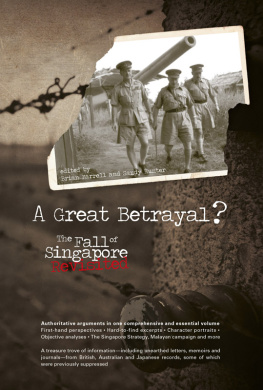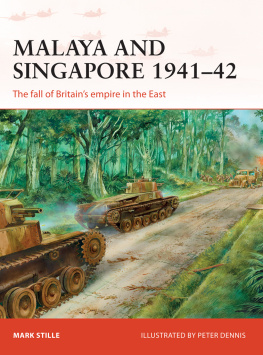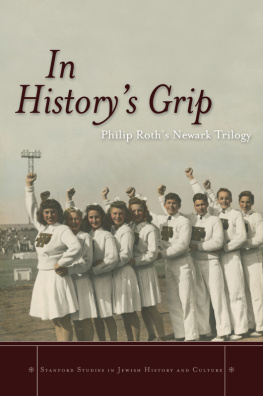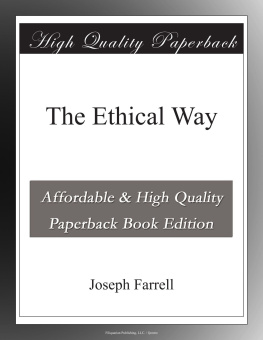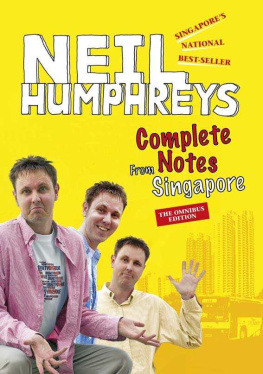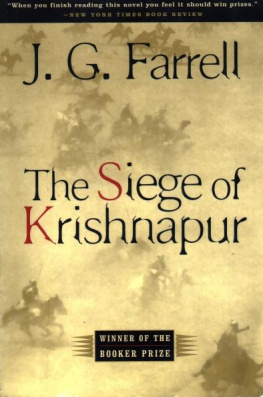J. G. Farrell - The Empire Trilogy: The Siege of Krishnapur, Troubles, and The Singapore Grip
Here you can read online J. G. Farrell - The Empire Trilogy: The Siege of Krishnapur, Troubles, and The Singapore Grip full text of the book (entire story) in english for free. Download pdf and epub, get meaning, cover and reviews about this ebook. year: 2010, publisher: New York Review of Books, genre: Detective and thriller. Description of the work, (preface) as well as reviews are available. Best literature library LitArk.com created for fans of good reading and offers a wide selection of genres:
Romance novel
Science fiction
Adventure
Detective
Science
History
Home and family
Prose
Art
Politics
Computer
Non-fiction
Religion
Business
Children
Humor
Choose a favorite category and find really read worthwhile books. Enjoy immersion in the world of imagination, feel the emotions of the characters or learn something new for yourself, make an fascinating discovery.
- Book:The Empire Trilogy: The Siege of Krishnapur, Troubles, and The Singapore Grip
- Author:
- Publisher:New York Review of Books
- Genre:
- Year:2010
- Rating:4 / 5
- Favourites:Add to favourites
- Your mark:
- 80
- 1
- 2
- 3
- 4
- 5
The Empire Trilogy: The Siege of Krishnapur, Troubles, and The Singapore Grip : summary, description and annotation
We offer to read an annotation, description, summary or preface (depends on what the author of the book "The Empire Trilogy: The Siege of Krishnapur, Troubles, and The Singapore Grip " wrote himself). If you haven't found the necessary information about the book — write in the comments, we will try to find it.
J. G. Farrell: author's other books
Who wrote The Empire Trilogy: The Siege of Krishnapur, Troubles, and The Singapore Grip ? Find out the surname, the name of the author of the book and a list of all author's works by series.
The Empire Trilogy: The Siege of Krishnapur, Troubles, and The Singapore Grip — read online for free the complete book (whole text) full work
Below is the text of the book, divided by pages. System saving the place of the last page read, allows you to conveniently read the book "The Empire Trilogy: The Siege of Krishnapur, Troubles, and The Singapore Grip " online for free, without having to search again every time where you left off. Put a bookmark, and you can go to the page where you finished reading at any time.
Font size:
Interval:
Bookmark:

THE EMPIRE TRILOGY
by
J.G. Farrell
* * *
Troubles
The Siege of Krishnapur
The Singapore Grip
* * *
New York Review Books

New York
Troubles
J.G. Farrell
Introduction by John Banville
New York Review Books

New York
In Derek Mahons great poem A Disused Shed in Co. Wexford, a pair of travelers find themselves Deep in the grounds of a burnt-out hotel, / Among the bathtubs and the washbasins; forcing open a long-locked door, they come upon a host of mushrooms crowding in the darkness. They have been there, the poet imagines, for decades, waiting for the blessed light to break in upon their fetid, liminal world:
Save us, save us, they seem to say,
Let not the god abandon us
Who have come so far in darkness and in pain.
We too had our lives to live...
The poem is a threnody for disappeared worldsLost people of Treblinka and Pompeii!especially, although it does not mention it directly, the world of the Anglo-Irish aristocracy. This hardy strain, which had endured for some eight centuries, came to its sudden withering in the Irish War of Independence, which ended with the treaty signed between the British government and Michael Collinss I.R.A. in 1922. Under the treaty Ireland was partitioned, with twenty-six southern counties becoming a Free State, and the six northern counties remaining under British sovereignty. The result was civil war.
Effectively the country had been portioned out between the Protestants of the North and the Catholics of the South. It seemed at the time, to the bellicose Collins no less than to the British Prime Minister Lloyd George, the only possible solution to an insoluble problem. One of the results of partition was that in both the North and the South a religious minority was left to fend for itself as best it might among a more or less hostile majority. In the North, that fending continues to this day; in the South, the Protestants, some 5 percent of the population, largely withdrew from public life, a matter of bitter regret to many of the more perceptive among them, from W.B. YeatsWe are no petty people!to Hubert Butler. Butler, an essayist of genius, never ceased to bemoan the loss to the life of Southern Ireland of that energy, intransigence, and often fierce radicalism which marked the Protestant tradition, especially in the North.
Mahons poem is dedicated to his friend J.G. Farrell. Farrell was an elusive, intensely private man, something of an enigma not only to the reading public but to many of those who knew him well. His parentage was a mixture of Irish and English. He was born in Liverpool in 1935, and spent much of his youth in the Far East. In his first term at Oxford he was afflicted with polio, which left him with a partially disabled arm. Nevertheless he was extremely attractivein looks he resembled, and indeed had something of the aloofly playful manner of, Marcel Duchampand had affairs with an impressive number of women, as Lavinia Greacen revealed in her 1999 biography. He wrote seven novels, the best-known of which are the three which comprise the so-called Empire Trilogy, The Siege of Krishnapur, The Singapore Grip, and Troubles.
In the spring of 1979, Farrell moved to Ireland, living in a cottage on a remote promontory in Bantry Bay. Four months later, in August, while fishing in stormy weather off rocks near the cottage, he was washed into the sea and drowned. His death at forty-four, a tragically early age, especially for a novelist, led to an inexplicable decline in his reputation. Had he lived, no doubt he would have done wonders, but even in the relatively short span of his career he erected an enduring literary monument, the capstone of which is Troubles. Although The Siege of Krishnapur won the Booker Prize in 1973, Troubles is surely his masterpiece, and the book of his that is certain to endure.
The Troubles of the title is the euphemism which the Irishpeasant, merchant, or Protestant aristoapplied to the ragged, sporadic, but brutal war that began in 1919 between Sinn Fein/I.R.A. and the British army of occupation. In fact, that war might be said to have started three years earlier, with the abortive Easter Rising of 1916, which lasted a week and ended with the summary execution of fourteen of its leaders. The uprising had been deeply unpopular among the majority of the Irish peoplelegend has it that lady passers-by belabored with their umbrellas the rebel force as it entered to occupy the General Post Office in Dublin on that Easter Monday morningand both the English and the Anglo-Irish regarded it as a stab in the back by an ungrateful rabblement at a time when thousands of young men, many of them Irish, were dying in the defense of liberty in the killing fields of France. However, the haste and brutality of the exe- cutions of the leaders of the Rising provoked a surge of resentment among the native population that would not be asuaged until British rule was ended, at least in the Twenty-Six Counties.
Although Troubles, first published in 1970, was set fifty years previously, it was unintentionally well-timed, and uncannily prescient. That year saw the onset in bloody earnest of a new round of Troubles which at last, it is to be hoped, are coming to an end. In 1970, as in 1920, battle was joined between two mutually uncomprehending tribes; now, it was between the Catholic and Protestant working classes of Northern Ireland, with the British army in the middle; then, between the Catholic peasantry and the Protestant Ascendancy, with a force of British irregulars, the Black and Tans, supposedly set to keep the peace but in reality waging punitive retaliation against an elusive army of rebels.
In Troubles, Farrell catches with appalling accuracy the brutal yet peculiarly farcical nature of that war that was never quite a war. Nowhere in the book do we see a single live I.R.A. man; even when one of the central characters, Major Archer, is being buried up to his neck on a beach to await drowning by the incoming tide, the hands that dig the hole and place him in it are anonymous, and might from the description of their ministrations be in the act of saving him rather than attempting to murder him. When we do get a glimpse of a rebel, a dead one, it is in one of the novels more gruesomely comic, closing scenesthe body of the young man has been laid out on a table in a gun room, where his executioner, Edward Spencer, lets his gaze wander around the trophies of wild animal heads on the paneled walls, and for an instant the dreadful thought occurred to the Major that Edward had now gone completely insane and was looking for a place on the wall to mount the Sinn Feiner.
Edward Spencera name that will have an allusive echo for anyone who knows the history of Elizabethan Ireland is one of the great comic portraits in modern literature. He is the proprietor, if that is the word, of the Majestic Hotel, a crumbling pile somewhere on the coast of County Wexford. It is to the Majestic that the haunted war veteran Major Archer comes, with wan reluctance, to claim Edwards daughter Angela as his bride. But Angela will not be wed, and as the weeks become months, and the months years, the Major lingers, an only faintly more vivid ghost among the hotels ghostly guests, ancient ladies, for the most part, who have taken up permanent residence under the tottering former magnificence of the Majestic, along with a steadily burgeoning pack of half-wild cats which roam the upper stories like the buildings bad dreams. Meanwhile Edwards surviving daughters, the terrible twins Faith and Charityanother wonderful, and curiously erotic, inventionare growing half-wild too, the staff and servants lurk like wood-sprites, the boy Padraig is turning transvestite, and Murphy the major-domo is going quietly but dangerously mad.
Font size:
Interval:
Bookmark:
Similar books «The Empire Trilogy: The Siege of Krishnapur, Troubles, and The Singapore Grip »
Look at similar books to The Empire Trilogy: The Siege of Krishnapur, Troubles, and The Singapore Grip . We have selected literature similar in name and meaning in the hope of providing readers with more options to find new, interesting, not yet read works.
Discussion, reviews of the book The Empire Trilogy: The Siege of Krishnapur, Troubles, and The Singapore Grip and just readers' own opinions. Leave your comments, write what you think about the work, its meaning or the main characters. Specify what exactly you liked and what you didn't like, and why you think so.

